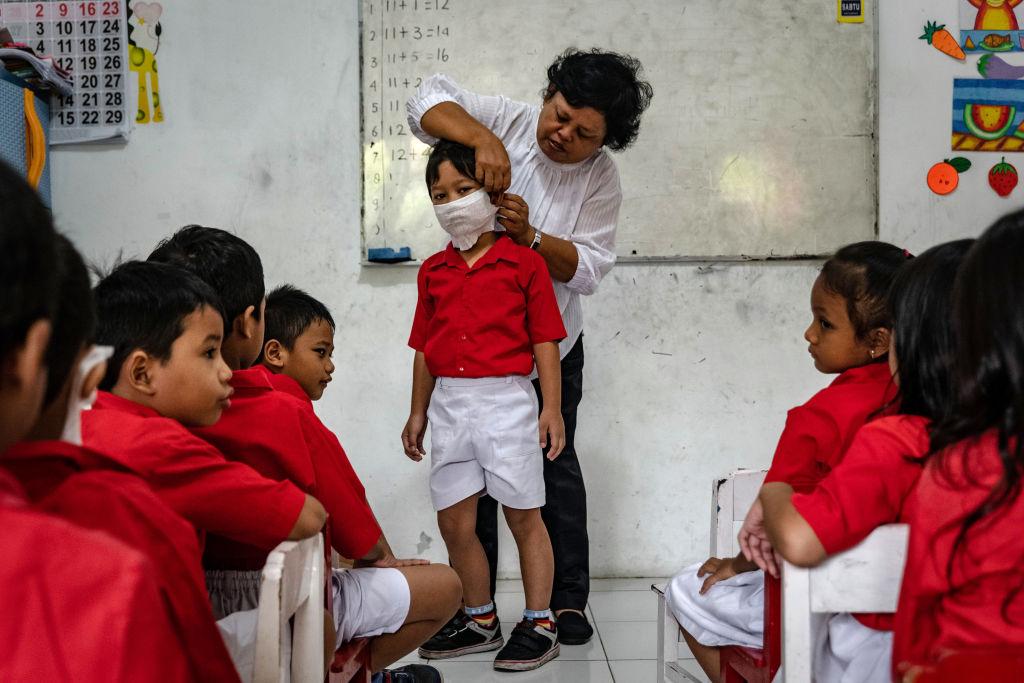Coronavirus: the grim view from Indonesia
Posted By John McBeth on March 27, 2020 @ 15:20

Like the end-of-the-world scenario from Nevil Shute’s futuristic novel On the beach [1], a feeling of impending desolation seems to hang over Indonesia as it waits for what health experts fear may be a slowly-ticking coronavirus bomb nearing the point of detonation.
From its first confirmed case on 3 March (far later than neighbouring Singapore, Malaysia, Thailand and the Philippines), Indonesia is now reporting more than 100 new patients [2] a day, with a death rate among the highest in the world.
Myanmar and Laos, two of the three ASEAN countries sharing a long, porous border with China, have finally reported their first Covid-19 cases, but the scepticism continues after they claimed their patients were recent travellers from Thailand, Britain and the United States.
Most of Indonesia’s nearly 900 confirmed infections are in Jakarta and in the surrounding provinces of West Java and Banten, but although commerce is down to a relative trickle, President Joko Widodo has refused to lock down [3] the capital because of the social and economic cost.
Given the number of access points into the city, it would be impossible anyway. But foremost in Widodo’s mind, according to government sources, is the ever-present danger of social unrest, which has already seen Indonesian-Chinese families move to Singapore to wait out the crisis.
Widodo is also refusing to approve proposed lockdowns in Papua, West Nusa Tenggara and North Kalimantan, apparently worried that it will lead to a flood of similar actions by other provincial governments seeking to prevent the further spread of the virus on islands where only a few cases have been reported so far.
Diplomatic missions, including the United States and Australia, have been cut to the bone, evacuating non-essential staff and their families for the simple reason that the Indonesian health system is already struggling to cope with a pandemic it took too long to prepare for.
Indeed, with a lack of proper facilities, equipment and medical personnel—and a health minister who anywhere else would have been sacked—Indonesia is fighting an uphill battle against the spread of Covid-19 that experts believe will only come to a peak in May or even June.
Altogether, 22 of Indonesia’s 34 provinces and special regions have reported a total of 893 confirmed infections and 78 deaths. A huge percentage of the cases have been on Java, home to 141 million of Indonesia’s 273-million-strong population—and most of those have been in urban centres.
With a 20% increase in infections each day, the Bandung Institute of Technology’s Center for Mathematical Modelling and Simulation believes there will be at least 60,000 cases [4] by the end of April, almost twice the estimate given this week by a London-based counterpart institute.
Starting from a lower initial base, the vast archipelago appears to be on the same trajectory as Iran (population: 83.9 million) which, as of 26 March, had a total of more than 29,000 cases, climbing by about 2,000 new patients a day, and 2,234 deaths—a mortality rate similar to that of Indonesia.
Faced with the beginning of the Ramadan fasting month on 23 April, when Muslims normally break their fast together in groups, the government has already decided to call off mudik, the post-Ramadan tradition in which about 10 million Indonesians flock back to their home towns and villages.
‘If we allowed mudik to go ahead it would be catastrophic’, one senior government minister told The Strategist. National Disaster Management Agency director Lieutenant General Doni Monardo, the concurrent head of the Covid-19 taskforce, added his voice as well, saying the annual pilgrimage ‘presents a risk of contagion to the entire country’.
There are already signs of a worrying, unchecked drift to the countryside, particularly among city dwellers who always return to their villages when the going gets tough. Casual workers have helped Indonesia through past economic crises, but the current medical emergency means the informal sector is being hit the hardest.
Testing has been minimal across Indonesia, but the recent delivery of new rapid-testing kits from China—however much a drop in the bucket—will likely give a better pointer to the enormity of the task before the government in trying to contain the virus.
Most fears centre on Bali, which is seen as the potential epicentre of the pandemic because of its huge numbers of tourists and the absence of any testing up to now. Outside of the island’s four state hospitals, private doctors are unaware of just how far the virus has spread in the community.
‘We send patients with suspect symptoms to those hospitals and never hear back’, says one physician, who is astonished the island still remains nominally open to tourists. ‘They keep a tight lid on everything. The only time we knew the hospitals were full was when we had to isolate one of their patients.’
Amid all the gloom, there are reminders that life goes on—or not. On 25 March, Widodo’s mother died of cancer in the Central Java city of Solo. The grieving president urged mourners to practise social distancing and not attend the funeral. Not far away, on the same day, a Detachment 88 counterterrorism team shot dead an Islamic militant and arrested two others on Java’s north coast.
Article printed from The Strategist: https://aspistrategist.ru
URL to article: /coronavirus-the-grim-view-from-indonesia/
URLs in this post:
[1] On the beach: https://en.wikipedia.org/wiki/On_the_Beach_(novel)
[2] more than 100 new patients: https://experience.arcgis.com/experience/685d0ace521648f8a5beeeee1b9125cd
[3] refused to lock down: https://www.thejakartapost.com/news/2020/03/24/no-lockdown-for-indonesia-jokowi-insists-as-covid-19-cases-continue-to-rise.html
[4] at least 60,000 cases: https://magz.tempo.co/read/36506/avoiding-the-crisis
Click here to print.